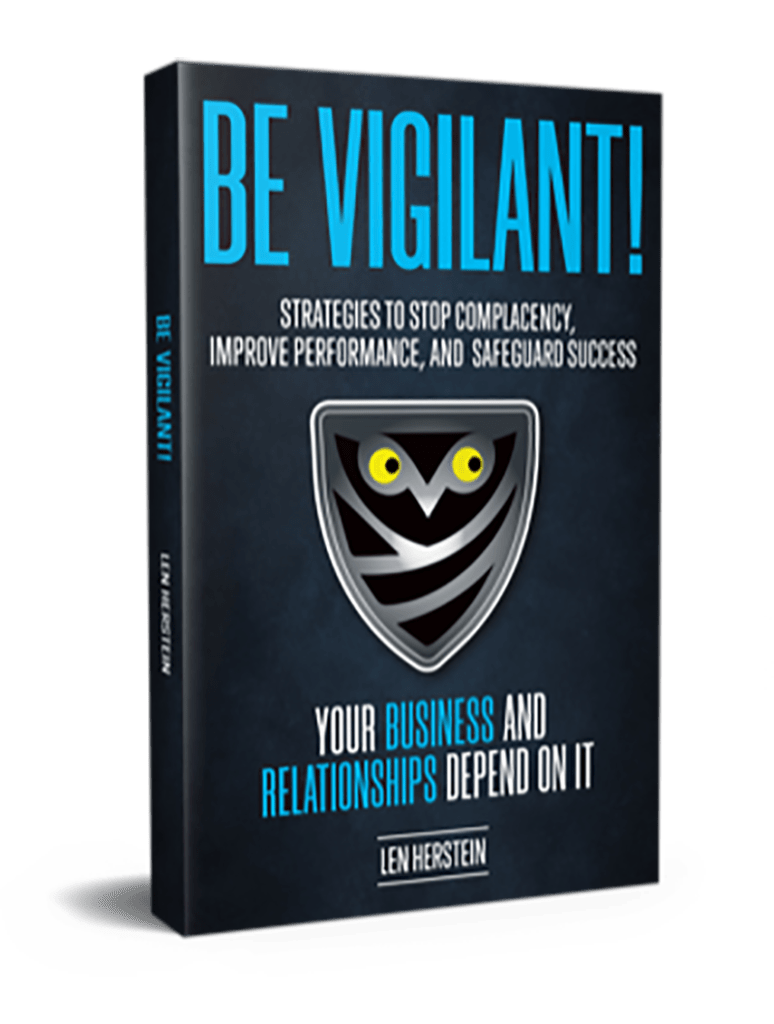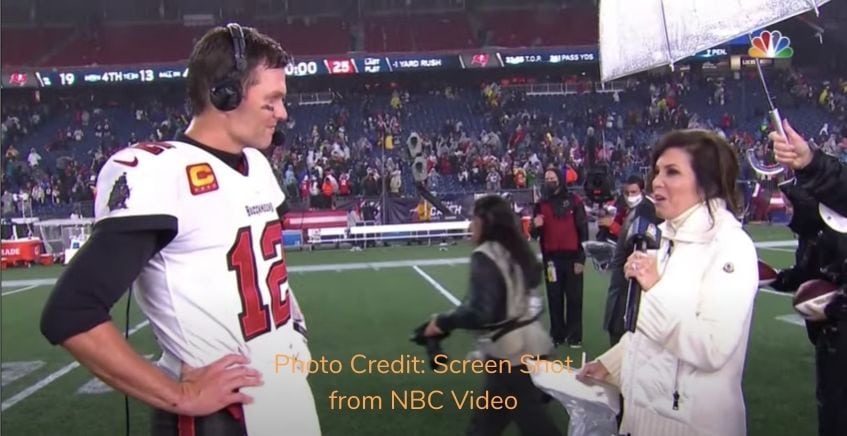
Vigilance is the antidote to complacency.
Last night, in a much-hyped event, Tom Brady’s Tampa Bay Buccaneers took on his former team, the New England Patriots, at Foxboro Stadium on Sunday Night Football.
Of course, we all know the plot line. Tom Brady spent his first 20 seasons in the NFL with the Patriots, winning 17 division titles and taking them to 9 Super Bowls (with 6 Super Bowl victories).
Brady then joined the Buccaneers in 2020 and promptly took them to a Super Bowl appearance and victory.
Sunday night marked Brady’s return to Foxboro to play against his old team. The result was a dramatic 19-17 victory, sealed when the Patriots’ kicker clanked a last-minute 56 yard field goal attempt off the left crossbar and wide in the driving rain.
Immediately after the game, Brady was taken aside for the obligatory post-game television interview. This was a big moment. He had come back to Foxboro and his team had won. The subplots regarding his relationship with the fans and with his former boss, Bill Belichick, were clearly on the mind of the interviewer. This was meant to be the time for Brady to get emotional and to soak in the meaning of this victory.
So, what did Brady talk about in the approximately 3.5 minute interview?
Well, the consummate professional, Brady gave shout outs to the fans, his family, his team, and the Patriots organization with whom he had spent so many years. But then, also being the consummate vigilant competitor, he talked about what the Bucs could have done better.
He acknowledged the fact that there was some luck in the win – a few inches to the right and the attempted field goal becomes a completed field goal that turns the win into a loss. He talked about how penalties had plagued his team today, how they performed poorly in the red zone, and how they needed to improve in those areas if they were to continue their success.
And this was after a win. A big win at that.
In that short video, Tom Brady gave us a glimpse of what it means to fight complacency with vigilance. To question everything, even when everything seemingly goes right. To not be lulled by the self-satisfaction that comes along with success. To be aware of potential threats, especially when those threats lie within us (or our organization).
Tom was already starting the process of debriefing the game – a process that, no doubt, will continue in a more formal way with the broader team in short fashion.
Debriefing (along with briefing) is so important to fighting complacency that I have devoted an entire chapter to it in my new book Be Vigilant! Strategies to Stop Complacency, Improve Performance, and Safeguard Success.
In the chapter, I provide 7 actionable tips for incorporating debriefs into your process and getting the most out of them. In this short post-game interview, Tom Brady exhibited a number of the tips. One that specifically stood out, though, was the understanding of the mission.
If the mission of the Tampa Bay Buccaneers had been to simply win the game, the conclusion could easily be that the mission was a success. However, the mission for Tom Brady and this team is clearly more involved than that. This game was a stepping stone towards a greater goal for the season. Of course, a win was important. But the win was not everything. HOW they won is important and provides insight into their progress towards their greater goal of a repeat Super Bowl win.
By understanding the true nature of the mission, Tom Brady is able to elevate beyond the win to look at what can be learned, even in success, to help the team continue to grow and put itself in the best position to accomplish their overall goals.
If your team or organization is like most, you may be using debriefs today – but you are probably mostly using them to dissect failures. How often are you debriefing SUCCESSES?
How well do you define your missions so that you can properly debrief them to generate the learnings that will keep your organization vigilant against the dangers of self-satisfaction and over-confidence?
If you find that you only look back at failures for lessons learned or that your missions are too narrowly defined, start thinking about how you can be more like Tom Brady after a big win.
Remember, complacency is all around us, always waiting for the right conditions to exist for it to thrive. Success is the ultimate breeding ground of complacency. The antidote to complacency is NOT paranoia (the fear of potential threats). It’s vigilance (the awareness of potential threats).
In Be Vigilant! I describe, in detail, 10 distinct ways you can start fighting complacency with vigilance right now. One of them is definitely to think more like Tom Brady – especially after a win.
Start your journey towards vigilance. Order your copy of Be Vigilant! today.



0 Comments